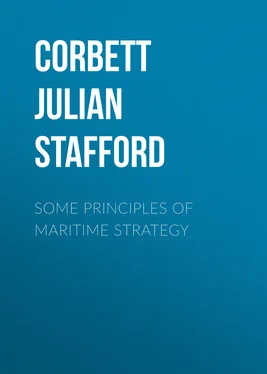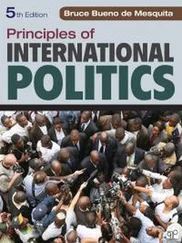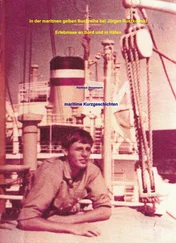Julian Corbett - Some Principles of Maritime Strategy
Здесь есть возможность читать онлайн «Julian Corbett - Some Principles of Maritime Strategy» — ознакомительный отрывок электронной книги совершенно бесплатно, а после прочтения отрывка купить полную версию. В некоторых случаях можно слушать аудио, скачать через торрент в формате fb2 и присутствует краткое содержание. Жанр: military_special, Прочая научная литература, История, foreign_edu, на английском языке. Описание произведения, (предисловие) а так же отзывы посетителей доступны на портале библиотеки ЛибКат.
- Название:Some Principles of Maritime Strategy
- Автор:
- Жанр:
- Год:неизвестен
- ISBN:нет данных
- Рейтинг книги:5 / 5. Голосов: 1
-
Избранное:Добавить в избранное
- Отзывы:
-
Ваша оценка:
- 100
- 1
- 2
- 3
- 4
- 5
Some Principles of Maritime Strategy: краткое содержание, описание и аннотация
Предлагаем к чтению аннотацию, описание, краткое содержание или предисловие (зависит от того, что написал сам автор книги «Some Principles of Maritime Strategy»). Если вы не нашли необходимую информацию о книге — напишите в комментариях, мы постараемся отыскать её.
Some Principles of Maritime Strategy — читать онлайн ознакомительный отрывок
Ниже представлен текст книги, разбитый по страницам. Система сохранения места последней прочитанной страницы, позволяет с удобством читать онлайн бесплатно книгу «Some Principles of Maritime Strategy», без необходимости каждый раз заново искать на чём Вы остановились. Поставьте закладку, и сможете в любой момент перейти на страницу, на которой закончили чтение.
Интервал:
Закладка:
In his note written at this time, when the distinction first came to him, he defines these two natures of war as follows: "First, those in which the object is the overthrow of the enemy , whether it be we aim at his political destruction or merely at disarming him and forcing him to conclude peace on our terms; and secondly, those in which our object is merely to make some conquests on the frontiers of his country , either for the purpose of retaining them permanently or of turning them to account as a matter of exchange in settling terms of peace." 3 3 Ibid, Preparatory Notice, p. vii.
It was in his eighth book that he intended, had he lived, to have worked out the comprehensive idea he had conceived. Of that book he says, "The chief object will be to make good the two points of view above mentioned, by which everything will be simplified and at the same time be given the breath of life. I hope in this book to iron out many creases in the heads of strategists and statesmen, and at least to show the object of action and the real point to be considered in war." 4 4 Ibid, p. viii
That hope was never realised, and that perhaps is why his penetrating analysis has been so much ignored. The eighth book as we have it is only a fragment. In the spring of 1830—an anxious moment, when it seemed that Prussia would require all her best for another struggle single-handed with France—he was called away to an active command. What he left of the book on "War Plans" he describes as "merely a track roughly cleared, as it were, through the mass, in order to ascertain the points of greatest moment." It was his intention, he says, to "carry the spirit of these ideas into his first six books"—to put the crown on his work, in fact, by elaborating and insisting upon his two great propositions, viz. that war was a form of policy, and that being so it might be Limited or Unlimited.
The extent to which he would have infused his new idea into the whole every one is at liberty to judge for himself; but this indisputable fact remains. In the winter in view of the threatening attitude of France in regard to Belgium he drew up a war plan, and it was designed not on the Napoleonic method of making the enemy's armed force the main strategical objective, but on seizing a limited territorial object and forcing a disadvantageous counter-offensive upon the French. The revolutionary movement throughout Europe had broken the Holy Alliance to pieces. Not only did Prussia find herself almost single-handed against France, but she herself was sapped by revolution. To adopt the higher form of war and seek to destroy the armed force of the enemy was beyond her power. But she could still use the lower form, and by seizing Belgium she could herself force so exhausting a task on France that success was well within her strength. It was exactly so we endeavoured to begin the Seven Years' War; and it was exactly so the Japanese successfully conducted their war with Russia; and what is more striking, it was on similar lines that in 1859 Moltke in similar circumstances drew up his first war plan against France. His idea at that time was on the lines which Jomini held should have been Napoleon's in 1812. It was not to strike directly at Paris or the French main army, but to occupy Alsace-Lorraine and hold that territory till altered conditions should give him the necessary preponderance for proceeding to the higher form or forcing a favourable peace.
In conclusion, then, we have to note that the matured fruit of the Napoleonic period was a theory of war based not on the single absolute idea, but on the dual distinction of Limited and Unlimited. Whatever practical importance we may attach to the distinction, so much must be admitted on the clear and emphatic pronouncements of Clausewitz and Jomini. The practical importance is another matter. It may fairly be argued that in continental warfare—in spite of the instances quoted by both the classical writers—it is not very great, for reasons that will appear directly. But it must be remembered that continental warfare is not the only form in which great international issues are decided. Standing at the final point which Clausewitz and Jomini reached, we are indeed only on the threshold of the subject. We have to begin where they left off and inquire what their ideas have to tell for the modern conditions of worldwide imperial States, where the sea becomes a direct and vital factor.
CHAPTER FOUR
LIMITED WAR AND MARITIME EMPIRES—
The German war plans already cited, which were based respectively on the occupation of Belgium and Alsace-Lorraine, and Jomini's remarks on Napoleon's disastrous Russian campaign serve well to show the point to which continental strategists have advanced along the road which Clausewitz was the first to indicate clearly. We have now to consider its application to modern imperial conditions, and above all where the maritime element forcibly asserts itself. We shall then see how small that advance has been compared with its far-reaching effects for a maritime and above all an insular Power.
It is clear that Clausewitz himself never apprehended the full significance of his brilliant theory. His outlook was still purely continental, and the limitations of continental warfare tend to veil the fuller meaning of the principle he had framed. Had he lived, there is little doubt he would have worked it out to its logical conclusion, but his death condemned his theory of limited war to remain in the inchoate condition in which he had left it.
It will be observed, as was natural enough, that all through his work Clausewitz had in his mind war between two contiguous or at least adjacent continental States, and a moment's consideration will show that in that type of war the principle of the limited object can rarely if ever assert itself in perfect precision. Clausewitz himself put it quite clearly. Assuming a case where "the overthrow of the enemy"—that is, unlimited war—is beyond our strength, he points out that we need not therefore necessarily act on the defensive. Our action may still be positive and offensive, but the object can be nothing more than "the conquest of part of the enemy's country." Such a conquest he knew might so far weaken your enemy or strengthen your own position as to enable you to secure a satisfactory peace. The path of history is indeed strewn with such cases. But he was careful to point out that such a form of war was open to the gravest objections. Once you had occupied the territory you aimed at, your offensive action was, as a rule, arrested. A defensive attitude had to be assumed, and such an arrest of offensive action he had previously shown was inherently vicious, if only for moral reasons. Added to this you might find that in your effort to occupy the territorial object you had so irretrievably separated your striking force from your home-defence force as to be in no position to meet your enemy if he was able to retort by acting on unlimited lines with a stroke at your heart. A case in point was the Austerlitz campaign, where Austria's object was to wrest North Italy from Napoleon's empire. She sent her main army under the Archduke Charles to seize the territory she desired. Napoleon immediately struck at Vienna, destroyed her home army, and occupied the capital before the Archduke could turn to bar his way.
The argument is this: that, as all strategic attack tends to leave points of your own uncovered, it always involves greater or less provision for their defence. It is obvious, therefore, that if we are aiming at a limited territorial object the proportion of defence required will tend to be much greater than if we are directing our attack on the main forces of the enemy. In unlimited war our attack will itself tend to defend everything elsewhere, by forcing the enemy to concentrate against our attack. Whether the limited form is justifiable or not therefore depends, as Clausewitz points out, on the geographical position of the object.
Читать дальшеИнтервал:
Закладка:
Похожие книги на «Some Principles of Maritime Strategy»
Представляем Вашему вниманию похожие книги на «Some Principles of Maritime Strategy» списком для выбора. Мы отобрали схожую по названию и смыслу литературу в надежде предоставить читателям больше вариантов отыскать новые, интересные, ещё непрочитанные произведения.
Обсуждение, отзывы о книге «Some Principles of Maritime Strategy» и просто собственные мнения читателей. Оставьте ваши комментарии, напишите, что Вы думаете о произведении, его смысле или главных героях. Укажите что конкретно понравилось, а что нет, и почему Вы так считаете.












